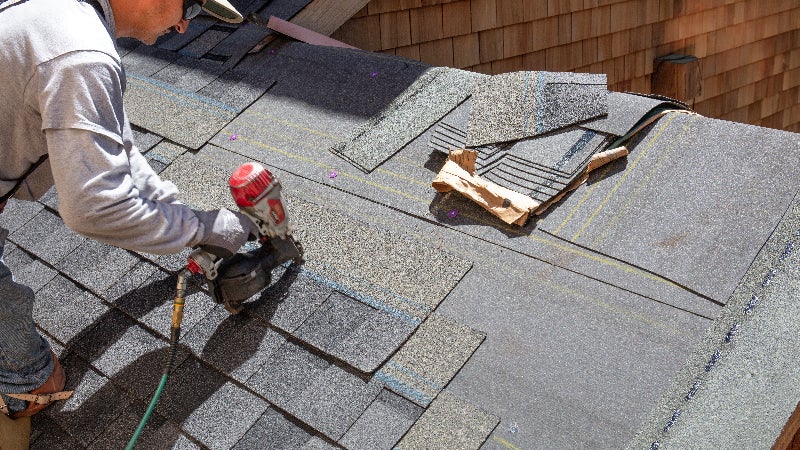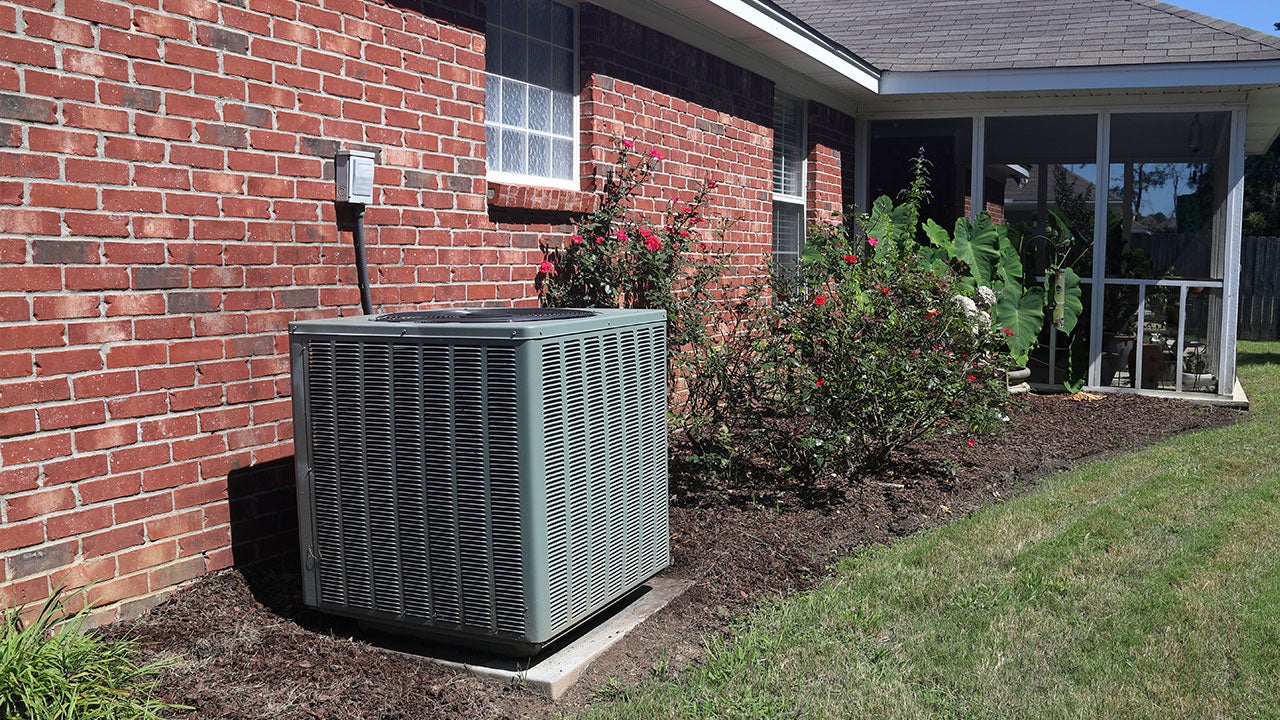How much does it cost to replace your home radiator?

Key takeaways
- On average, the cost to replace a radiator is around $1,500.
- However, the exact cost depends on a few factors, including the type of radiator and its location in your home.
- If you don’t have the cash, you might consider taking out a home equity loan or HELOC — especially if the problem is system-wide or with your boiler.
Radiators have been heating homes since the mid-1800s, but they are still widely used — and for good reason. Modular in nature, they’re often easy and inexpensive to repair since most individual parts can be fixed or replaced without overhauling the whole system. That doesn’t mean radiators are exempt from needing to be replaced, though, and while minor repairs may be affordable, the radiator replacement cost should be factored into your home maintenance budget.
The good news is that home radiator replacement and repair are among the less expensive emergency home maintenance costs that can arise—as little as $500, though most end up around $1,500, according to Fixr.com. Still, radiator installation costs are a considerable expense for many homeowners, especially if a unit collapses without warning. So it’s important to educate yourself on the estimated cost of a home radiator replacement to help you avoid overpaying, or paying for the wrong thing.
What is a radiator?
Radiators are an important part of some central heating systems, acting as heat sources for individual rooms in homes. Most radiators use either steam or hot water to produce heat, which then warms up the surrounding air in the room where the radiator is located. In the U.S., radiators are found primarily in older homes, while newer properties typically have furnaces or heat pumps, which distribute heated air through ducts.
How much does it cost to replace a radiator?
Homes with radiators typically have one central boiler, which is connected by pipes to a system of radiators placed strategically throughout the house. There are a ton of parts involved, so the first step with a home radiator replacement is determining that the radiator actually is the problem. In fact, radiators are often the most durable part of a heating system, and often it’s the boiler or pipes that really need replacing. In short, troubleshooting before replacing could save you unnecessary expenses.
From there, it’s a matter of calculating the radiator replacement cost and identifying whether any additional changes have to be made. The basic breakdown of costs includes:
Home radiator replacement cost
The total cost to replace a radiator will vary significantly based on the type of radiator in question, its size and even its placement in your home (bathrooms and halls tend to be cheaper, bedrooms and basements pricier). According to Fixr.com, the average cost nationally for a house radiator replacement ranges from about $1,000 to $3,500, though some replacement jobs can be accomplished for as little as $500 on the low end and as much as $8,600 on the high end. The majority of radiator replacements end up costing around $1,500.
Boiler replacement cost
It’s often not the radiator that needs to be replaced, but the boiler. The most expensive part of the system, it can cost anywhere from $1,500 to $15,000 to replace, with the average cost running around $7,500. While size and efficiency are the biggest factors behind the cost, the boiler type also plays a role in what you pay. Traditional boilers powered by gas and electricity are generally less expensive, while geothermal heat pumps are more costly upfront but save on your energy bill over the long term.
Labor and installation cost
You should never attempt to perform a home radiator replacement on your own. Hire a licensed professional to carry out any repair or replacement work, making sure to get several quotes before choosing someone. Installation costs will vary based on the type of system. You should expect to pay between $600 and $800 to install a plumbed (hot water and steam) radiator system and $200 to $450 for an electric radiator system.
Replacement cost by radiator type
The type of radiator that you have will affect how much it costs to replace. In general, hot water radiators are on the cheaper end, while steam radiators are the most expensive to replace, according to Angi, a home contractor marketplace.
Electric radiators
If you need to replace an electric radiator, you can expect to pay between $200 and $1,500 for a new one. You’ll also have to hire an electrician to install it, but the process is usually fairly straightforward – especially compared to hot water and steam radiators.
Hot water radiators
Hot water radiators are slightly more affordable than electric ones, coming in at $100 to $1,000 for a new unit. To keep labor costs down, you should look for a replacement radiator with a similar design to your current one. Otherwise, your installer may need to spend extra time setting up the piping, which can increase your radiator replacement cost.
Steam radiators
Steam radiators are the priciest of the three, with a new unit costing between $300 and $2,500. Like their hot-water counterparts, these radiators run on a one- or two-pipe system, with the latter being costlier to install but also more efficient and durable.
Replacement cost by room
The cost to replace a radiator is also impacted by its location in your home. Here’s a quick look at how much a radiator replacement costs by room.
| Room type | Number of radiators | Price range |
|---|---|---|
| Living or dining room | 5 | $500 – $12,500 |
| Kitchen | 3 | $300 – $7,500 |
| Bedroom | 4 | $400 – $10,000 |
| Bathroom | 1 | $100 – $2,500 |
| Office | 3 | $300 – $7,500 |
Source: Angi
How to know if your home radiator needs repair
What are the signs a home radiator needs repair? A lack of heat (or too much heat) is the obvious one, but drips, strange sounds, and vibrations from the unit can be other clues.
Time to call in a pro—a qualified and licensed heating specialist to tell you whether your home radiator needs repair or replacement. They will test the radiator for leaks, check the boiler, inspect pipes and look for faulty valves. Once the initial diagnosis has been performed, the contractor can give you an estimate on what repairs need to be carried out or if replacement is necessary—and if so, what the radiator replacement cost will come to.
How to save on a home radiator replacement
The most reliable way to reduce your home radiator replacement cost is to get multiple quotes from local professionals. Don’t just choose the lowest bidder, though. If one estimate is significantly lower than the rest, find out why. It may be because the contractor isn’t as qualified or uses low-quality parts, which will only lead to more costs later on.
You can also save money by making repairs whenever possible rather than replacing the radiator entirely. Swapping out a single fin on your house radiator or replacing a bleeding valve will be much gentler on your bank account than an entire home radiator replacement.
As we’ve mentioned, radiator type also impacts what you’ll pay for a replacement. But bear in mind that while some radiators may cost you more upfront, they could help you realize savings down the road.
For instance, investing in a plumbed radiator system combined with a high-efficiency boiler can translate into lower bills over the long run. In contrast, an electric radiator system—though the least expensive to purchase and install—is generally the most expensive way to heat your home on an ongoing basis. Additionally, electric models generally only last eight to 12 years, while plumbed radiators are known to last as long as 20 years—meaning you may save money by buying a plumbed radiator that will not need to be replaced again for about two decades.
How to pay for replacing a home radiator
If you’re faced with an unexpected radiator replacement cost, the total bill for parts and labor could be anywhere from a few hundred dollars to several thousand. If you don’t have that kind of money sitting in your bank account, don’t panic. There are many financing options that are designed for emergency home repairs.
Personal loan
For most home radiator replacement projects, a personal loan will be the simplest and most appropriate financing option because you won’t need to borrow a huge sum of money to get it done. As long as you have a decent credit score, you could have the necessary funds in your bank account with a personal loan in as little as one day. You won’t need to put your house up for collateral and can even get a loan online without having to visit a bank or credit union. Personal loans are perfect for small home improvement projects of this type.
Home equity loan
If your entire home heating system needs an overhaul and the projected costs are at least $10,000, you may need to consider a home equity loan. This option functions as a second mortgage and allows you to borrow a lump sum of money against your existing equity in your home. However, most banks won’t issue a home equity loan for smaller amounts, so this likely won’t be an option if you simply need a few hundred dollars for a new radiator. This type of loan is also secured against your home, which means your home could be at risk if you don’t pay it back.
Home equity line of credit
Like home equity loans, home equity lines of credit, or HELOCS, typically have a minimum draw amount of $10,000 or more. HELOCs function more like a credit card than a lump sum loan, though you are borrowing against the equity in your home. You can borrow from the line of credit as needed but don’t need to take everything out in one lump sum, and you’ll only have to pay interest on what you borrow. Again, this is really only an option if your home radiator replacement cost reaches five figures, which probably won’t happen unless you decide to replace your entire home heating system.
The bottom line
Before assuming a home radiator replacement’s in order, have a skilled professional troubleshoot the source of your problem. If the radiator itself is the issue, a simple repair can often eliminate the need to replace it entirely. If the pro determines the radiator does need replacing, then you can move forward with asking for a cost quote for a new radiator, and whatever else needs fixing to get the heat back on.
Additional reporting by Taylor Freitas
You may also like

How to switch homeowners insurance if escrow pays your premium


How much does it cost to replace a roof?

How much does a HVAC installation cost?


